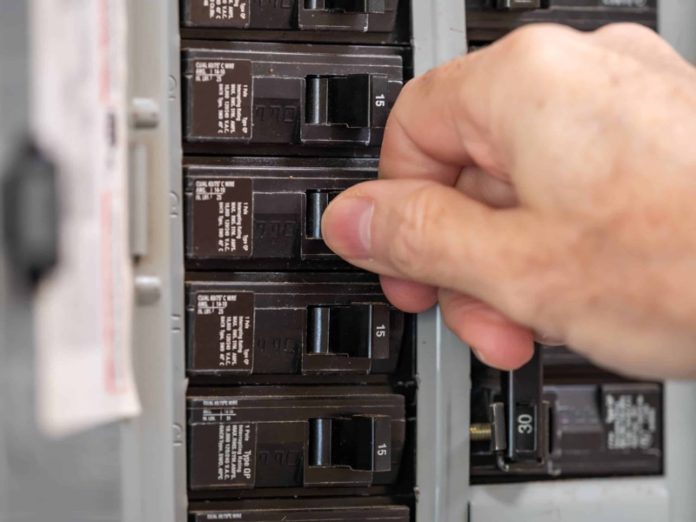In your home’s electrical safety, there’s a silent guardian known as the circuit breaker. But what happens when this protector fails? Picture dealing with an unseen threat that quietly sabotages your electrical setup. From flickering lights to appliances acting up, a lousy breaker can be a real headache, jeopardizing your convenience and, more importantly, your home’s safety. This article dives into the downsides of a malfunctioning circuit breaker, exploring the dangerous path from a minor annoyance to a potential electrical hazard.
There are many harmful effects of a bad breaker, but a few can be very dangerous and should be treated as soon as possible.
Fire Hazard due to Bad Breakers:
A malfunctioning breaker poses a severe fire hazard as it can lead to overheating within the electrical system. When breakers fail to properly interrupt the circuit during an electrical fault, excessive heat builds up, increasing the risk of electrical fires. This potential danger threatens not only the integrity of your home’s wiring but also the safety of its occupants. Regular inspection and maintenance of breakers are crucial to prevent such fire hazards and ensure a secure living environment.
Power Surges:
Bad breakers can cause sudden power surges, posing a risk to sensitive electronic devices and appliances. When a breaker fails to regulate the flow of electricity properly, it can lead to fluctuations in voltage, potentially damaging expensive equipment. The harmful effects of power surges extend beyond immediate financial concerns, impacting the functionality and lifespan of electronic devices. Regular monitoring and maintenance of breakers are essential to mitigate the risk of power surges and safeguard your valuable electrical investments.
Electrical Shock:
All time a risk of electrical shocks during everyday activities, such as handling appliances or switches due to bad breakers. This poses a direct threat to the safety of residents, as malfunctions in the Breaker can lead to uncontrolled electricity flow. Preventive measures, including routine inspections and timely replacement of damaged breakers, are crucial in minimizing the potential for electrical shocks and ensuring the overall safety of the living environment.
Appliance Damage:
Continuous power fluctuations can damage appliances, reducing their lifespan and resulting in costly repairs or replacements. Addressing breaker issues promptly through regular inspections and necessary repairs is essential to safeguard appliances and prevent unnecessary financial burdens on homeowners.
Inconvenient Outages:
Frequently tripping breakers can result in inconvenient power outages, disrupting daily activities and causing frustration for residents. These interruptions not only impact routine tasks but can also pose challenges for essential appliances and electronics, emphasizing the need for a stable electrical system to maintain a seamless living experience. Regular maintenance and timely addressing of breaker issues are crucial to minimize such inconveniences and ensure a reliable power supply for households.
Bad Breaker leads to death:
A malfunctioning breaker is more than an inconvenience; it’s a potential danger to your home and loved ones. From the risk of electrical fires to damaging appliances and causing inconvenient outages, the harmful effects are far-reaching. Prioritizing the maintenance and prompt repair of your Breaker ensures the safety and well-being of your household.
Increased Energy Bills:
A malfunctioning breaker can lead to energy inefficiencies, causing appliances to consume more electricity than necessary. This inefficiency is reflected in higher energy bills, contributing to financial strain for homeowners.
Compromised Home Safety:
A bad breaker compromises the safety of your home, elevating the risk of electrical accidents and emergencies. Addressing breaker issues promptly through regular maintenance and professional intervention is essential to maintaining a secure living.
Preventative measures to avoid Harmful effects of a bad breaker
To prevent the harmful effects of a bad breaker, consider the following preventative measures:
1. Regular Inspections:
Schedule periodic inspections by a qualified electrician to assess the condition of your circuit breakers. Identifying and addressing potential issues early can prevent them from escalating into more significant problems.
2. Timely Replacement:
If your home is equipped with older circuit breakers or if they show signs of wear, consider proactively replacing them. Modern breakers are designed with enhanced safety features and can provide more reliable protection.
3. Avoid Overloading Circuits:
Be mindful of the electrical load on each circuit. Avoid overloading circuits with too many appliances or devices, as this can lead to overheating and breaker malfunctions.
Taking these preventative measures will help maintain the integrity of your electrical system, ensuring a safe and reliable power supply for your home.

